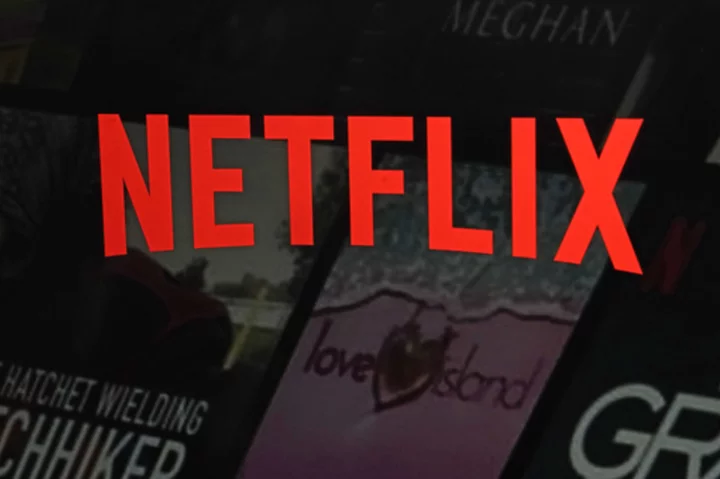Netflix on Tuesday outlined how it intends to crack down on the rampant sharing of account passwords in the U.S., its latest bid to reel in more subscribers to its video streaming service as its growth slows.
To combat password sharing, Netflix said it will limit U.S. viewership of its programming to people living in the same household. Those who subscribe to Netflix's standard or premium plans — which cost $15.50 to $20 per month — will be able to allow another person living outside their household to use their password for an additional $8 per month, a $2 discount from the company's standard stand-alone basic plan.
Without providing details how it authenticates subscriber identities or accounts, Netflix assured that everyone living in the same household of a U.S. customer will still be able to stream TV series and movies “wherever they are — at home, on the go, on holiday.” The company based in Los Gatos, California has roughly 70 million U.S. accountholders.
The long-anticipated move, telegraphed by Netflix a year ago, seeks to end a practice that the company allowed to go unchecked for years while its streaming service was attracting subscribers in droves. At that time, management had little incentive to risk riling customers by reining in password sharing.
While Netflix looked the other away, an estimated 100 million people worldwide were getting passwords from family and friends to freeload on Netflix TV series such as “The Crown” and films such as “All Quiet On The Western Front.” Those passwords were funneled through Netflix’s 232.5 million worldwide paying subscribers, who generated the bulk of the company’s $32 billion in revenue last year.
But after a year of lackluster subscriber growth that included its largest customer losses in more than a decade, Netflix is putting its foot down.
In February, it began blocking freeloading viewers in Canada, New Zealand, Portugal and Spain, following similar moves in Latin America.
Before the crackdown on password sharing, Netflix began introducing features, such as the ability to transfer the profiles set up on subscriber accounts to make it easier for people to retain their viewing histories after they are no longer able to watch shows for free.
Netflix's effort to force more of its viewers to pay for access to its programming follows the launch of a $7 monthly plan that inserted commercials into its service for the first time. Netflix has picked up an additional 9 million worldwide subscribers since the ad-supported option debuted, although not all of those signed up for the low-priced plan.
Although the new U.S. surcharge for viewers living outside subscribers' households is less than Netflix’s basic streaming plan, it comes at a time that Amerians have been paring their discretionary spending because of high inflation. That inflationary squeeze, combined with more competition from other streaming services, is one of the main reasons Netflix has suffered a slowdown in growth.
Netflix co-CEO Greg Peters acknowledged in January the crackdown on password sharing might risk more subscriber cancellations.
“It’s worth noting that this will not be a universally popular move,” Peters advised investors. Any attrition in the U.S. would deepen the erosion that occurred within a region where Netflix loss about 920,000 subscribers last year.
Netflix's shares fell 2% during Tuesday's afternoon trading, but the stock price is still up by about 20% so far this year.

